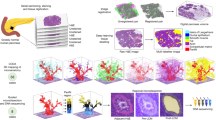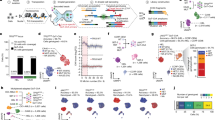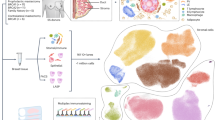Abstract
Genome damage is a hallmark of human cancer. Efforts at assessing the impact of genome damage on tumor phenotype and patients outcome have focused on measurements of the relative DNA content in tumor cells compared to normal cells and the assessment of allelic loss at single or multiple selected loci that are thought to harbor genes important in cancer biology. We adapted a global, high-resolution genotyping method for determination of global and unbiased allelic loss. We generated a score, termed global genome damage score (GGDS), that is a continuous variable from zero to one and a measure of the extent of damaged DNA in individual tumors. In 71 patients with completely resected non-small-cell lung cancer, the GGDS ranged from 0.0006 to 0.5530 with a median value of 0.0401 indicating that between 0.06 and 55.3% of the genome has allelic loss. Patients with high scores (>0.04) had a significantly worse outcome than those with low scores (median overall survival time 35.5 vs >120.0 months, P=0.006 log-rank test; median disease-free survival 28.3 vs >120.0 months, P=0.003 log-rank test). This suggests that the clinical behavior of lung tumors with low GGDS is relatively benign whereas tumors with high GGDS are aggressive resulting in early death of patients.
This is a preview of subscription content, access via your institution
Access options
Subscribe to this journal
Receive 50 print issues and online access
$259.00 per year
only $5.18 per issue
Buy this article
- Purchase on Springer Link
- Instant access to full article PDF
Prices may be subject to local taxes which are calculated during checkout


Similar content being viewed by others
References
Ali IU, Lidereau R, Theillet C, Callahan R . (1987). Science 238: 185–188.
Auer G, Eriksson E, Azavedo E, Caspersson T, Wallgren A . (1984). Cancer Res 44: 394–396.
Barlogie B, Johnson DA, Smallwood L, Raber MN, Maddox AM, Latreille J et al. (1982). Cancer Genet Cytogenet 6: 17–28.
Bell GI, Selby MJ, Rutter WJ . (1982). Nature 295: 31–35.
Bepler G, Gautam A, McIntyre LM, Beck AF, Chervinsky DS, Kim YC et al. (2002). J Clin Oncol 20: 1353–1360.
Botstein D, White RL, Skolnick MH, Davis RW . (1980). Am J Genet 32: 314–331.
Cavenee WK, Dryja TP, Phillips RA, Benedict WF, Godbout R, Gallie BL et al. (1983). Nature 305: 779–784.
Contal C, O'Quigley J . (1999). Comput Stat Data Anal 30: 253–270.
Fearon ER, Vogelstein B . (1990). Cell 61: 759–767.
Fong K, Zimmerman P, Smith P . (1995). Cancer Res 55: 220–223.
Hoeijmakers J . (2001). Nature 411: 366–374.
Jeffreys AJ, Wilson V, Thein SL . (1985). Nature 314: 67–73.
Jen J, Kim H, Piantadosi S, Liu ZF, Levitt RC, Sistonen P et al. (1994). N Engl J Med 331: 213–221.
Mandrekar JN . (2003). SUGI Proc 28: 261–280.
Mitsudomi T, Oyama T, Nishida K, Ogami A, Osaki T, Sugio K et al. (1996). Clin Cancer Res 2: 1185–1189.
Nakamura Y, Leppert M, O'Connell P, Wolff R, Holm T, Culver M et al. (1987). Science 235: 1616–1622.
Royle NJ, Clarkson RE, Wong Z, Jeffreys AJ . (1988). Genomics 3: 352–360.
Vogelstein B, Fearon ER, Hamilton SR, Kern SE, Preisinger AC, Leppert M et al. (1988). N Engl J Med 319: 525–532.
Vogelstein B, Fearon ER, Kern SE, Hamilton SR, Preisinger AC, Nakamura Y et al. (1989). Science 244: 207–211.
Volm M, Drings P, Mattern J, Sonka J, Vogt-Moykopf I, Wayss K . (1985). Cancer 56: 1396–1403.
Wolley RC, Schreiber K, Koss LG, Karas M, Sherman A . (1982). J Natl Cancer Inst 69: 15–22.
Yunis JJ . (1983). Science 221: 227–236.
Acknowledgements
This work was supported in part by grants from the Department of Defense (National Functional Genomics Center) and the National Cancer Institute (R01 CA102726 and U01 CA101222).
Author information
Authors and Affiliations
Corresponding author
Rights and permissions
About this article
Cite this article
Zheng, Z., Cantor, A. & Bepler, G. A global genome damage score predictive of lung cancer patients outcome. Oncogene 25, 4491–4494 (2006). https://doi.org/10.1038/sj.onc.1209476
Received:
Revised:
Accepted:
Published:
Issue Date:
DOI: https://doi.org/10.1038/sj.onc.1209476



